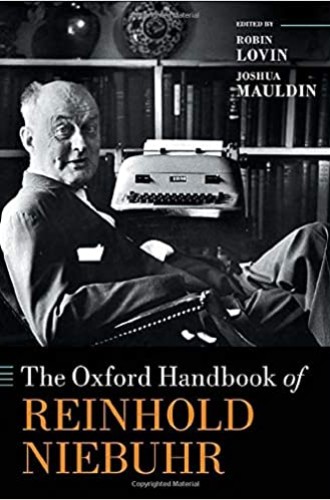The world through Niebuhr’s eyes
38 scholars weigh in on Reinhold Niebuhr’s life and times, his allies and adversaries, his theology and ethics
Reinhold Niebuhr’s Moral Man and Immoral Society was on the reading list of my Introduction to Ethics course in college. Its premise is that individuals are capable of moral behavior, but group behavior tends toward selfishness. Niebuhr’s acknowledgment of moral ambiguity in so much of politics and international affairs has been with me ever since. He helped me to begin to set my own moral compass.
The Oxford Handbook of Reinhold Niebuhr is a timely means of looking at the current world from Niebuhr’s perspective. Edited by Robin Lovin and Joshua Mauldin, it covers his life and times, his allies and adversaries, his theology and ethics and how they affected his politics and his legacy. It also reminds us of the importance of public intellectuals with grounding in theology and ethics in the 20th century. It does so by assembling some of today’s foremost academics to write about Niebuhr. The 38 contributors—academic theologians and ethicists, historians, foreign policy experts, and legal scholars—indicate the breadth of Niebuhr’s influence.
For many years Niebuhr was associated with this magazine. He first wrote for the Century in 1922, and he was a frequent contributor until a rift began with an article he wrote in 1939. In it he argued that the United States should not refuse to be part of the world on the brink of war, while many at the magazine were arguing for a more pacifist course. This book puts that argument in the context of the life and times within which Niebuhr lived, including the intellectual and political movements that were swirling around him, “forging his theological ideas through the pressure of world events.”





